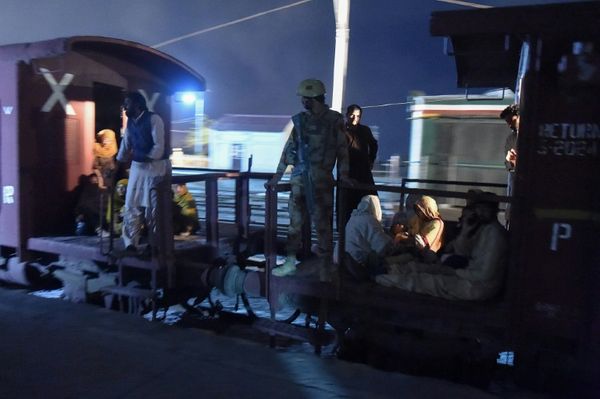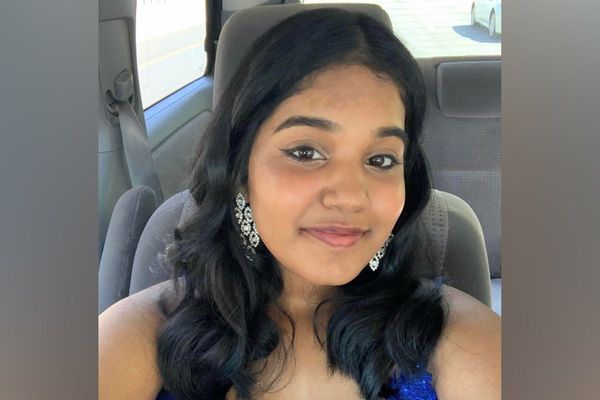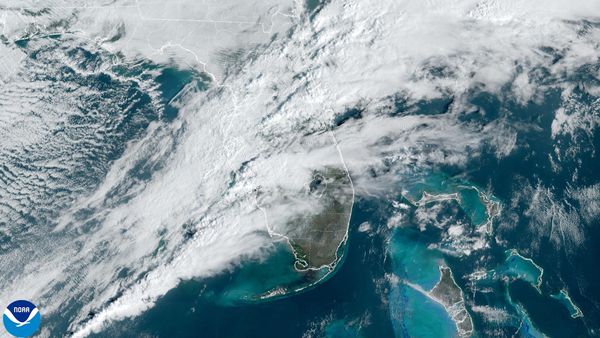
This story contains spoilers for Episode 2 of House of the Dragon.
The opening credits of Game of Thrones famously offer a dynamic bird’s-eye trip around a pulsing map of George R. R. Martin’s fantasy world. The sequence serves partly as a practical guide to a sprawling universe. But it also has a thematic purpose, reminding viewers of the show’s scope: This is a series that hops from city to city, taking in aristocratic dynasties but also lowly soldiers, exiled assassins, and far-flung sorcerers. House of the Dragon, HBO’s much-hyped prequel series, debuted its own opening credits with its second episode this week. The rousing theme music remains the same, but the setting is constrained, with rivers of blood coursing through the walls of Old Valyria, the ancestral home of the Targaryen family. The message is clear: This show really cares about only one bloodline.
The Targaryens, largely obliterated by the time that Game of Thrones takes place, are the central focus of House of the Dragon, and that may hold limited appeal to some viewers. My colleague Sophie Gilbert wisely pointed out the brutal challenge of investing in a TV series where the main characters treat incestuous intermarriage as an accepted norm. Unlike Game of Thrones, which features a huge ensemble of idiosyncratic figures from which viewers can pick and choose their favorites, most of the House of the Dragon leads are silver-haired, dragon-riding royals jockeying for a place on a throne that audiences know their family will eventually (almost 200 years later) lose to rebellion. So why am I so compelled?
Because palace intrigue has always been my favorite aspect of Martin’s world. Yes, Game of Thrones brims with otherworldly concepts such as warrior dragons, a 700-foot-tall wall of ice built to keep zombies out, and witches who can revive the dead. But one of my all-time favorite plots in that show’s history comes in its second season, when the cunning Tyrion Lannister (played by Peter Dinklage) assumes the role of Hand of the King in the capital of King’s Landing and begins a war of espionage against his sister, using rumors of fake marriage plots to root out her loyalists. Martin’s A Song of Ice and Fire novels, all of which I have read and reread, owe as much inspiration to the high fantasy of The Lord of the Rings as they do to the real-life machinations of medieval European history, and the balance on House of the Dragon is tilted far in the latter direction.
[Read: How ‘Game of Thrones’ lost its way as a political drama]
The plotting in Episode 2, “The Rogue Prince,” relies more heavily on whispered conversation and hypothetical alliance building than does the show’s blood-soaked pilot. Set six months later (big time jumps, it seems, will be quite common here), it focuses on King Viserys (Paddy Considine) as he ponders his choice of second wife following the death of Queen Aemma during childbirth. His ally Corlys Velaryon (Steve Toussaint) puts forward his 12-year-old daughter, Laena (Nova Fouellis-Mosé), who displays chilling, heartbreaking poise as she takes a walk with her king and promises him, “I would give you many children of pure Valyrian blood.” “Is that what your father told you to say?” Viserys responds with a sigh, adding, “What did your mother tell you?” “That I wouldn’t have to bed you until I turned 14,” she replies.
The exchange is nauseating to behold. Though Viserys is visibly disturbed and declines Laena as a bride, he announces at the end of the episode that he will marry 15-year-old Alicent Hightower (Emily Carey), the daughter of his Hand Otto (Rhys Ifans), who has charmed Viserys by serving as a confidant as he mourns his wife. The new engagement is presented as a strategic blunder more than anything else, but it’s impossible to venerate a character for turning down a preteen so that he can marry a teen instead. The nastiness of such medieval scheming, and the particular perversity of the Targaryen dynasty (which is fond of intermarriage), means that the morality of House of the Dragon is as flat as a pancake. This is not Game of Thrones, which has more plainly heroic characters such as Ned Stark to root for; then again, Ned Stark couldn’t make it through one season of that show before he was beheaded.
Enjoying House of the Dragon requires a specific buy-in from its viewers—the acceptance that royal dynasties are inherently rotten and that the careful political game of arranging marriages and naming heirs is complex, but unavoidably cruel. That will come as no surprise to any history nerd; the grim details of the Anarchy, an English succession crisis of the 12th century that is a clear inspiration for House of the Dragon, include King Stephen’s heir, Matilda, being betrothed to the 24-year-old future Holy Roman Emperor Henry V when she was only 8 years old. Matilda’s analogue in the show is Princess Rhaenyra (Milly Alcock), who is Viserys’s named successor despite the fact that Westeros has never been ruled by a woman. “Here is the hard truth,” her relative Rhaenys (Eve Best) tells her in the second episode. “Men would sooner put the realm to the torch than see a woman ascend the Iron Throne.”
As House of the Dragon progresses, I’m most fascinated to see how it navigates the balance between fantasy and reality. Martin’s made-up world is under no obligation to fully replicate the nasty truths of the medieval past—Stephen of Blois and Matilda at no point jumped on the backs of dragons during their joust for the English throne. But the Game of Thrones universe has always served heaps of brutality along with complicated diplomacy. Viserys, with his impending teen marriage, is a sad and unsympathetic figure, a king already broken by the loss of his first wife, even if his conniving brother Daemon (Matt Smith) is the show’s more obvious villain. The biggest question so far is whether Rhaenyra can chart a rosier course for her family as they wrestle with their future. But those bloody opening credits don’t offer a lot of hope.







